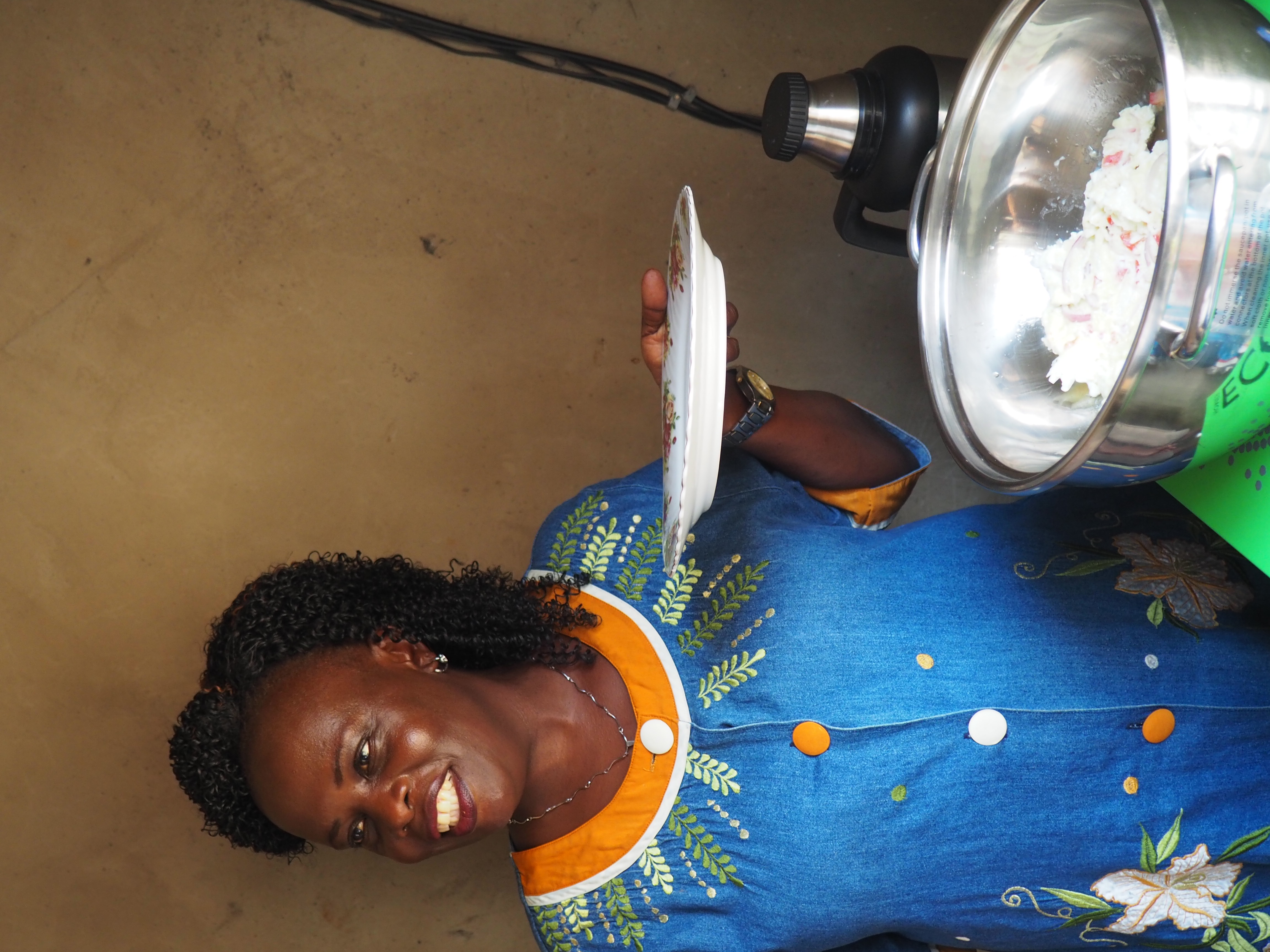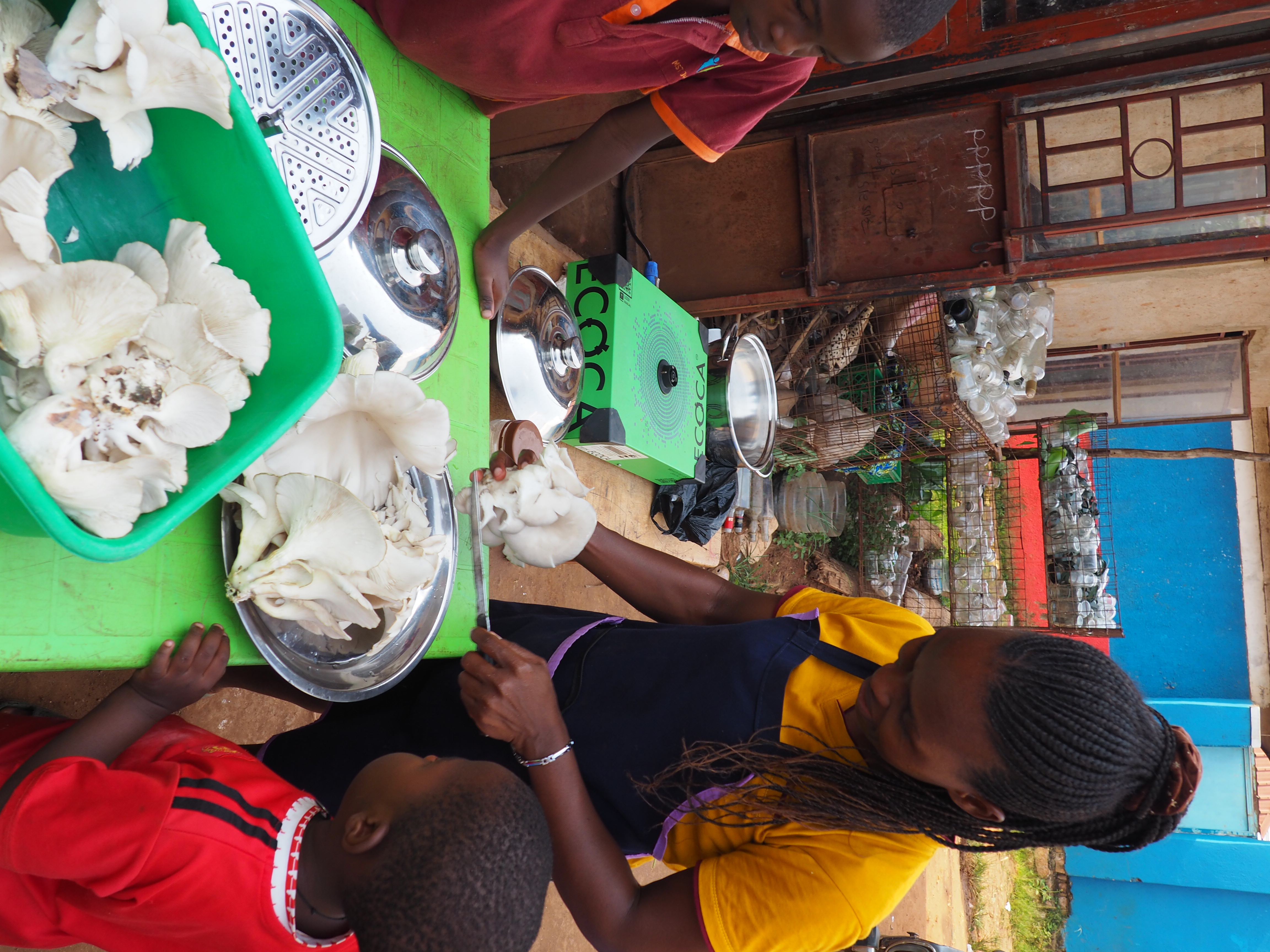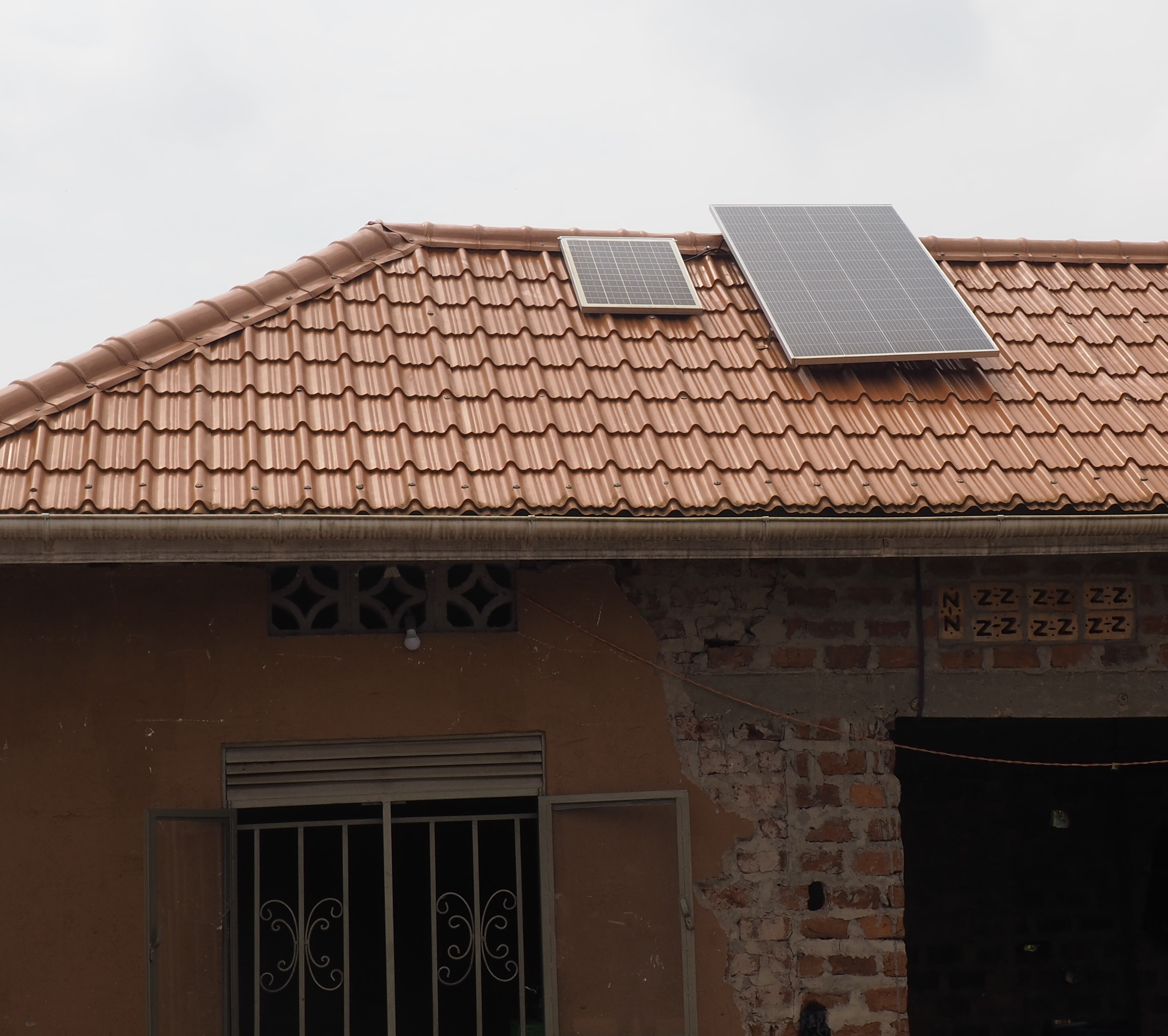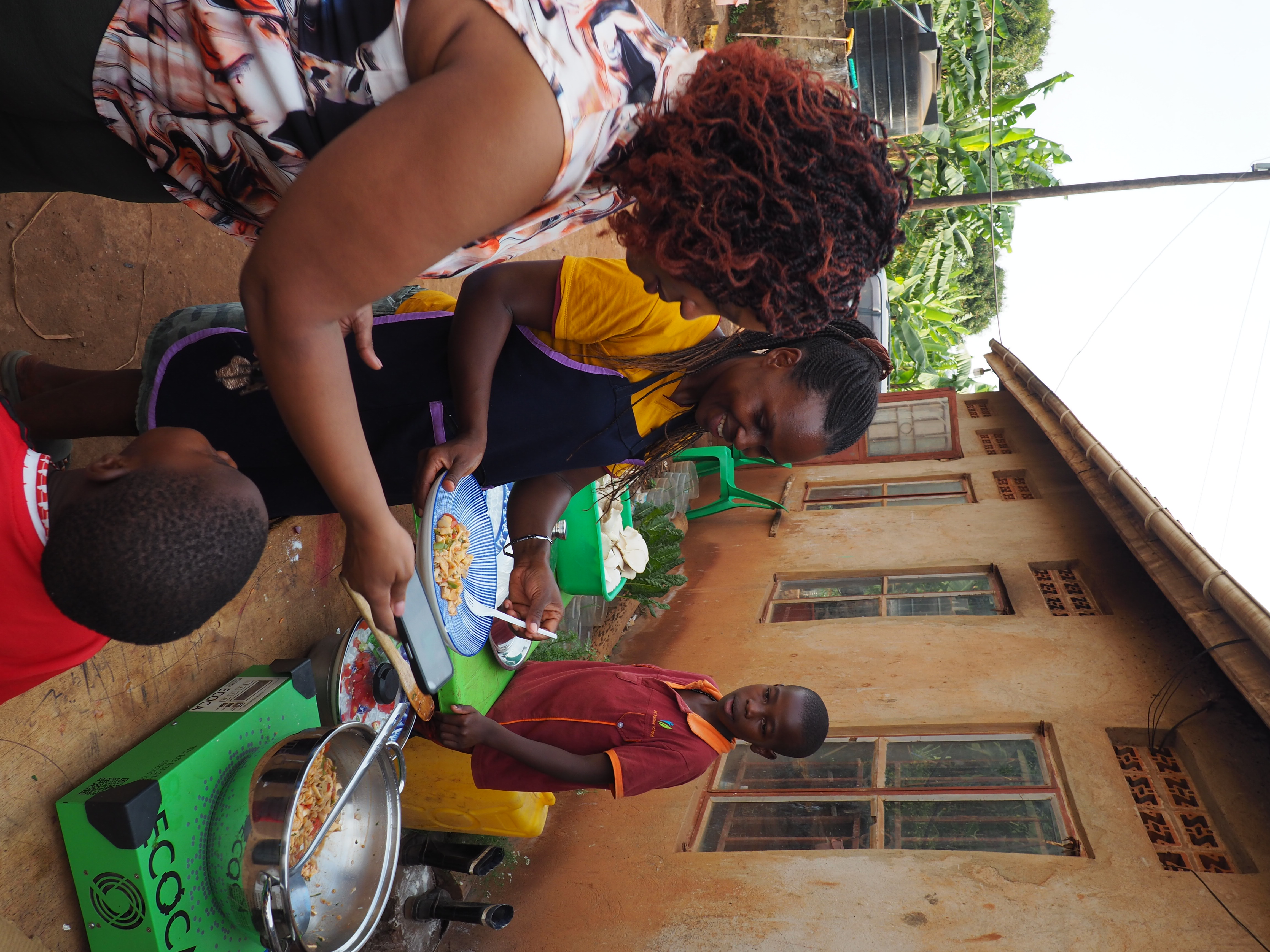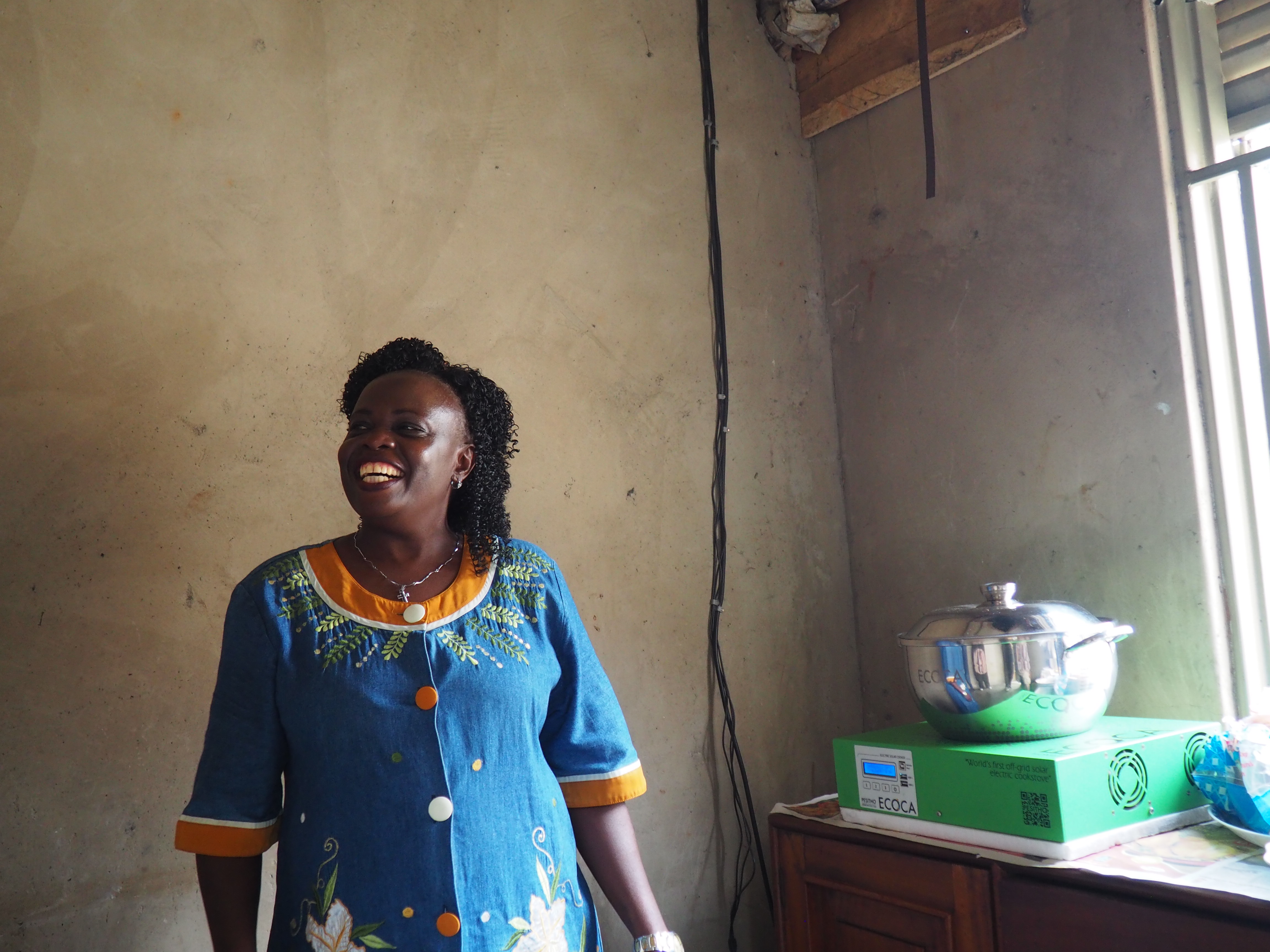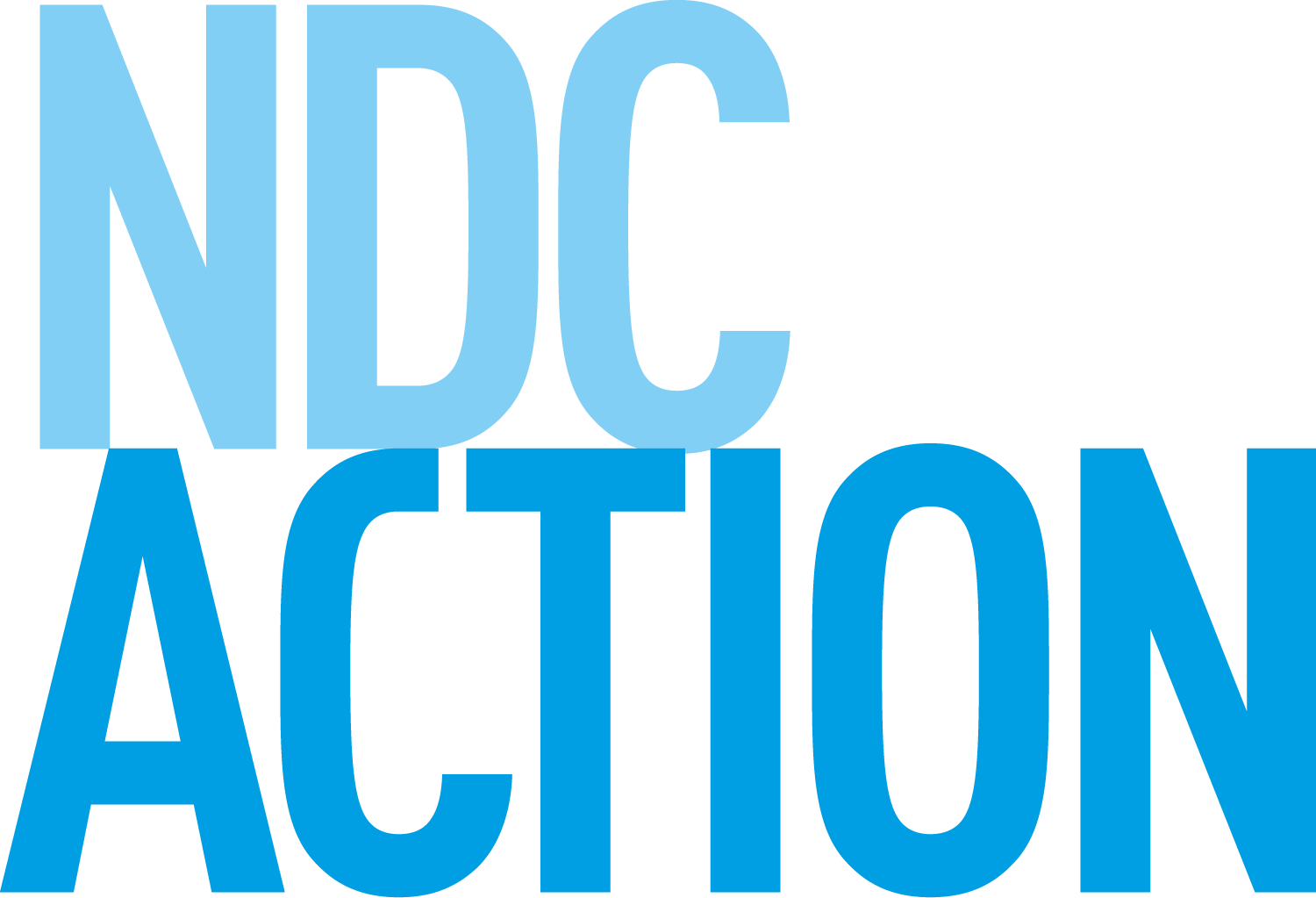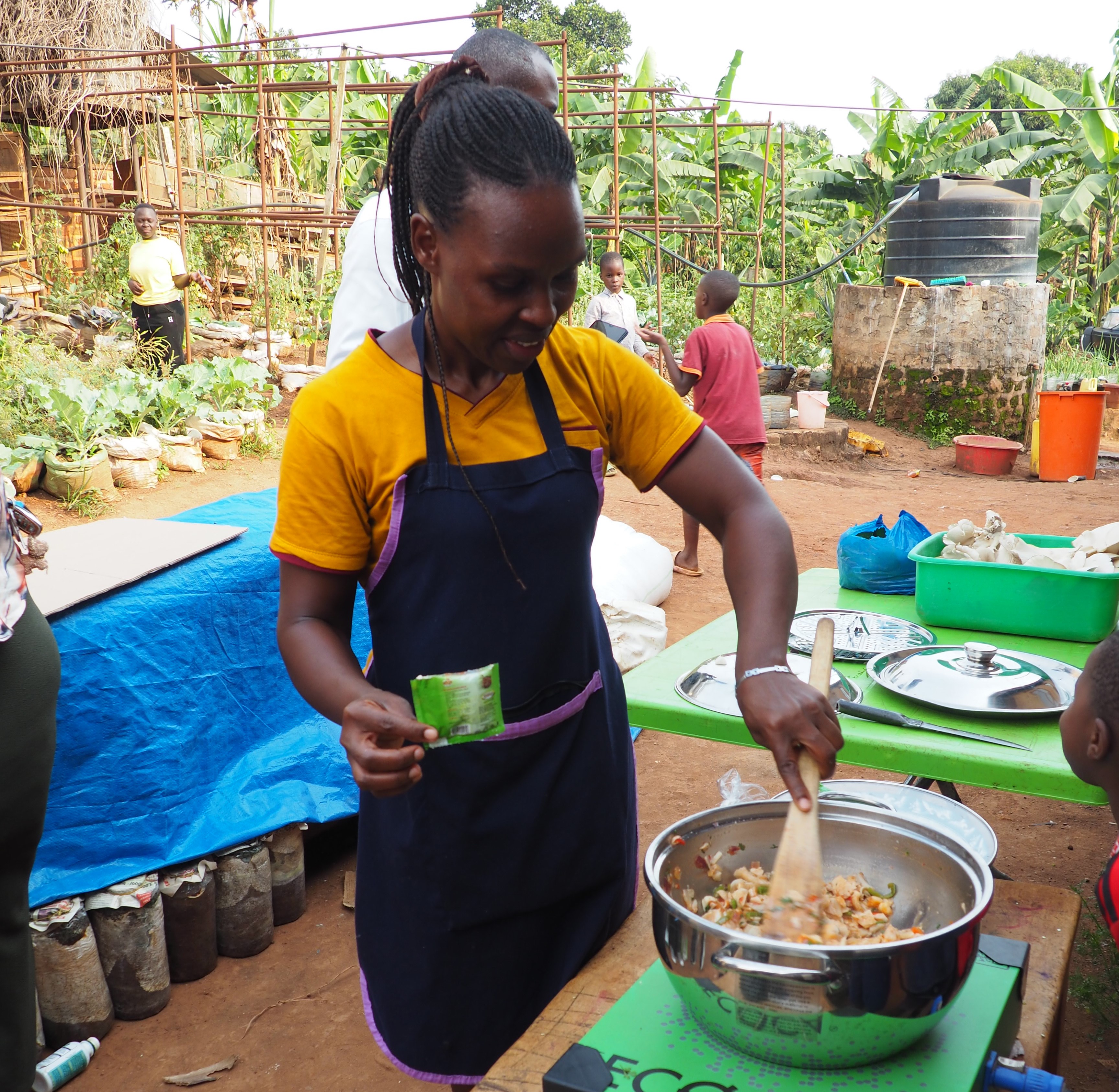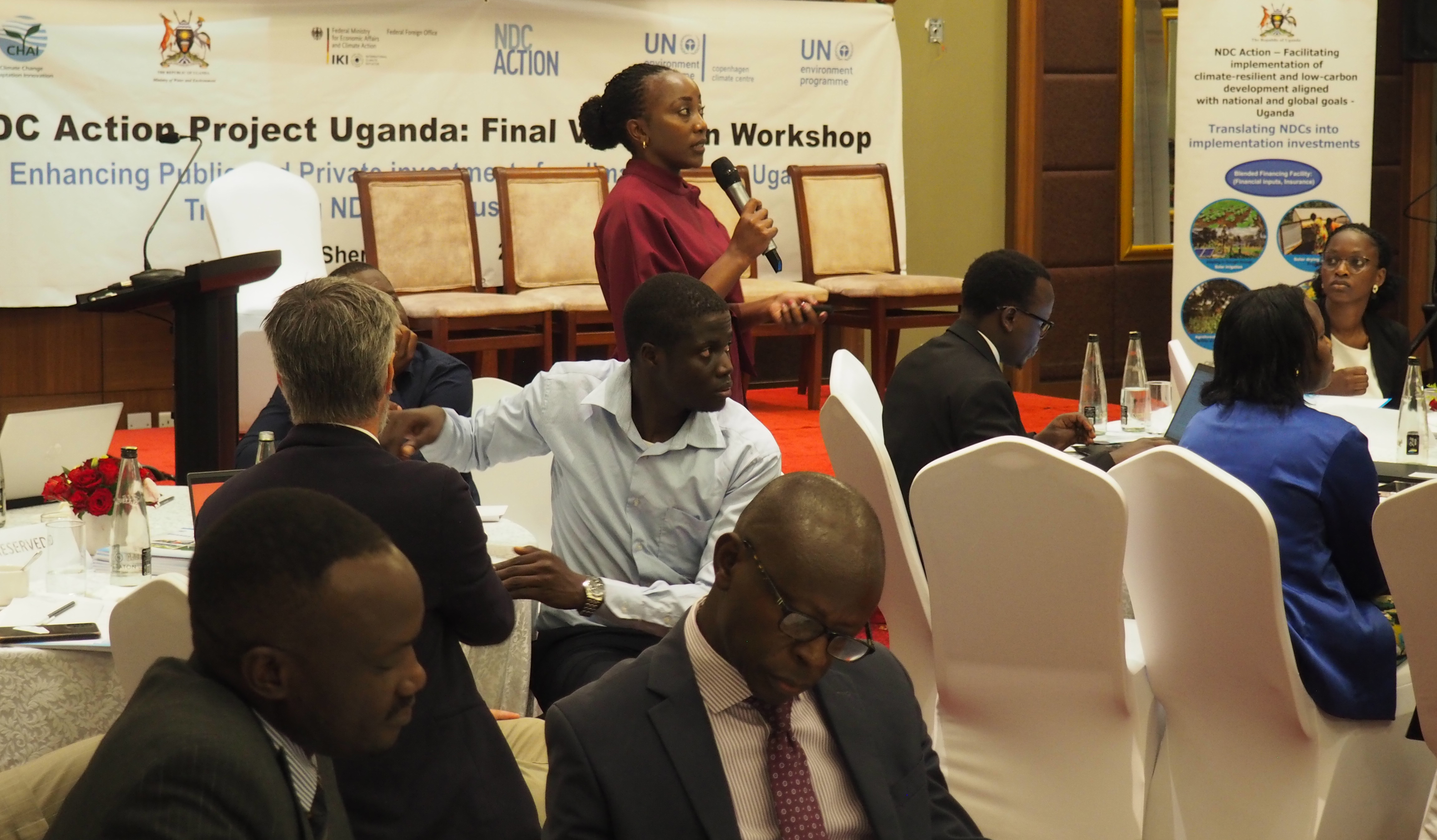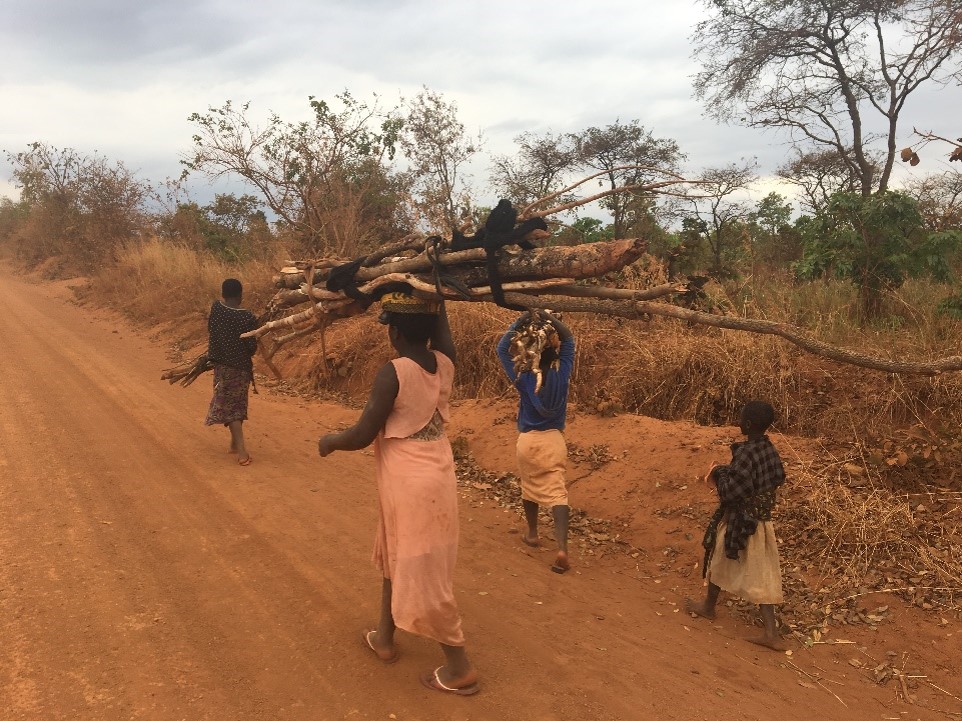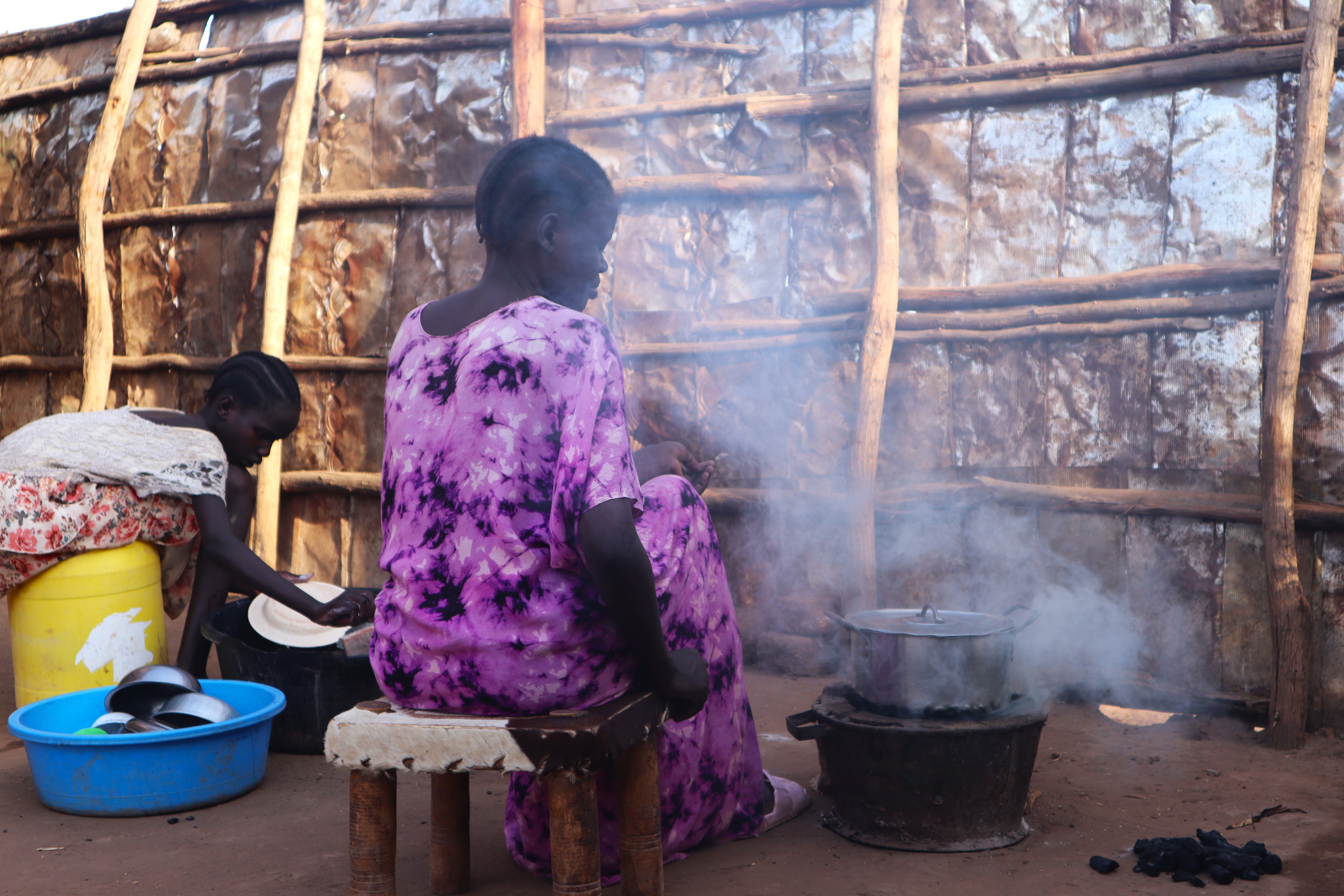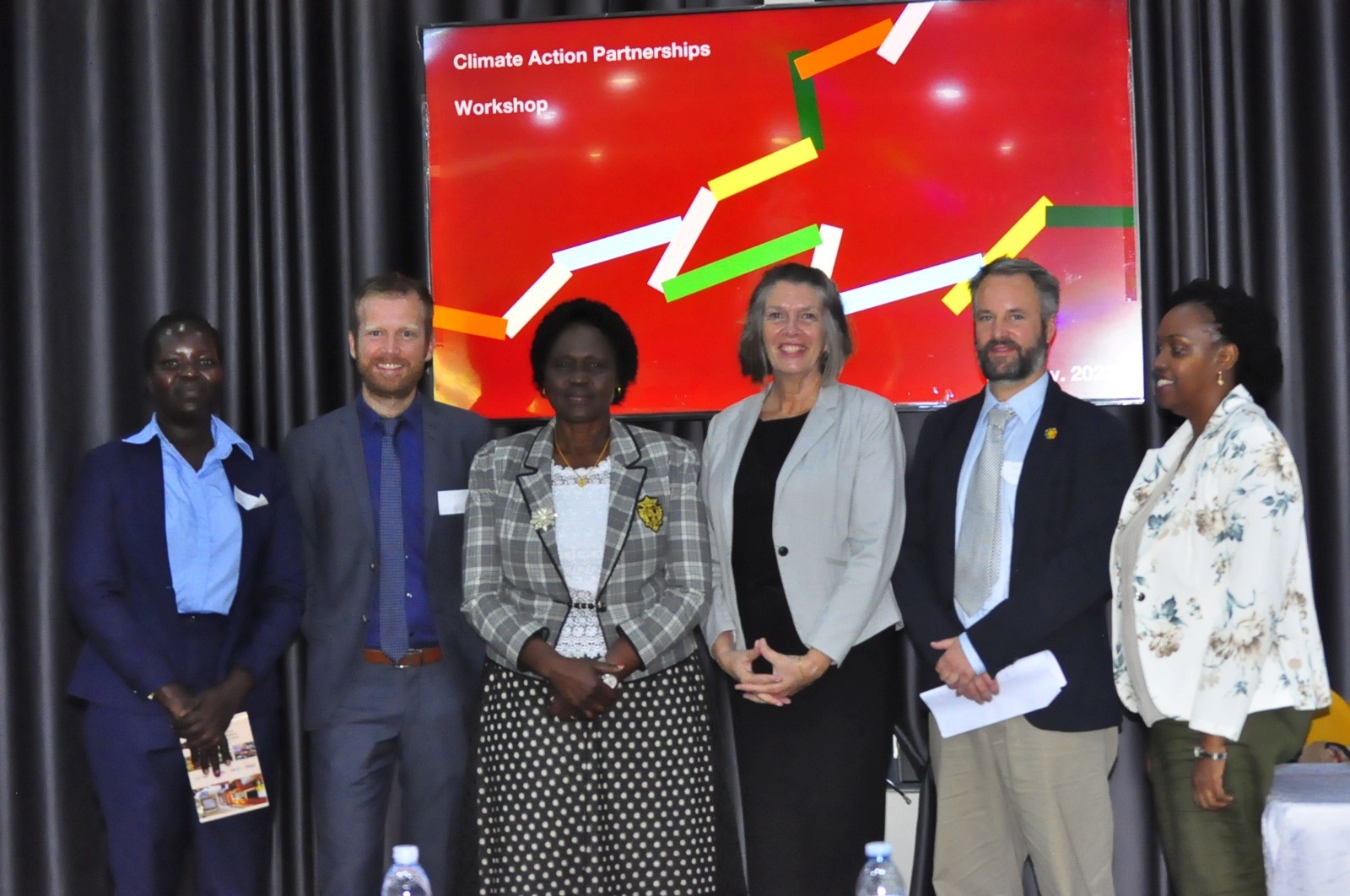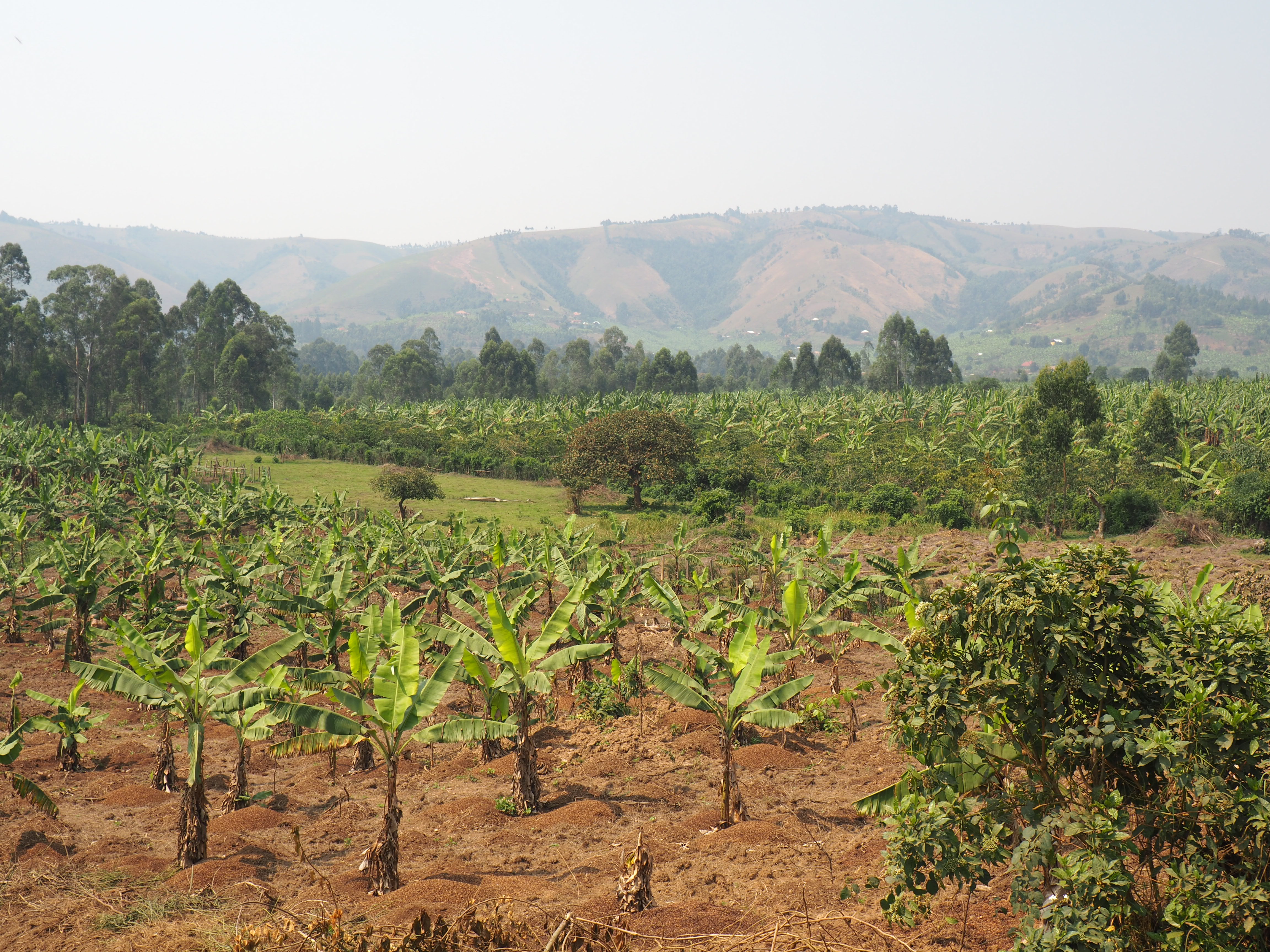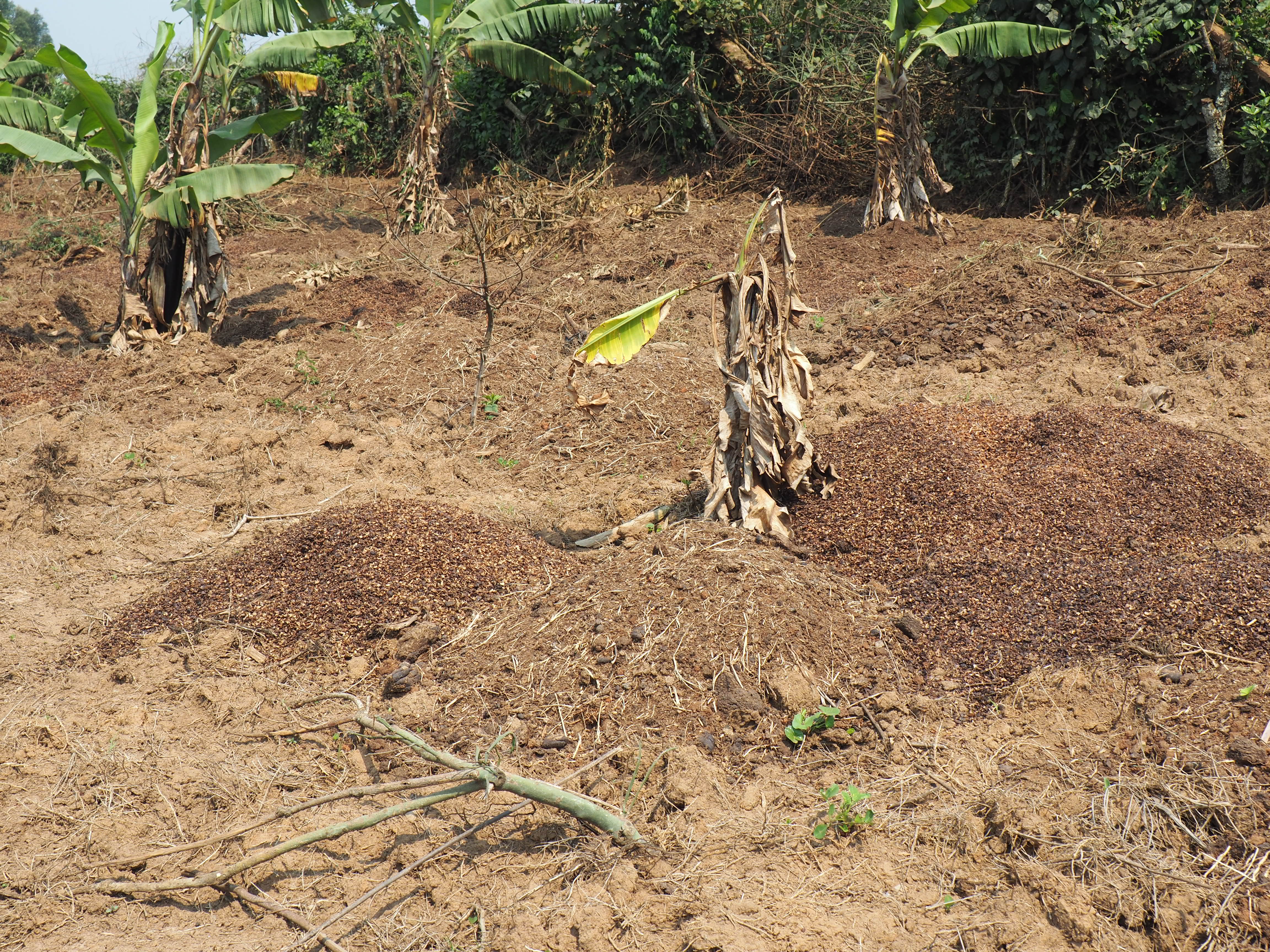Christine Nakanwagi Kagimu adds the peeled plantain to the water and pushes the button at the base of the green electric cooker. Running on batteries and using induction, the e-cooker promptly brings the water to a boil, and when Christine adds greens, her small kitchen on the outskirts of Kampala quickly fills with an appetizing aroma.
Christine first saw the e-cooker at her father’s 87th birthday party. Her sister bought one for their parents explaining that using electricity to cook is both easier and healthier and would save their parents a lot of money from not having to buy charcoal.
Now, Christine proudly shows off the solar panels connected to her e-cooker, that charges the batteries every day.
A good investment
Before buying an e-cooker, Christine and her family of 12 used both gas and charcoal to cook their meals. She estimates that they used 75.000 Ugandan shillings on charcoal and 140.000 shilling on gas, the equivalent of 20 USD and 38 USD, every month.
With prices of both charcoal and gas going up globally and in Uganda, the savings from going electric can cover the cost of an e-cooker in less than 2 years.
Christine bought her e-cooker after saving up for 4 months. She paid half of the system cost (approx. 300 USD) up front and got the rest on credit at a special offer zero % interest rate with flexible repayments.
She hopes to finish her payments soon, so she can buy another set of panels and cooker.
Cooks meat like charcoal
In another part of Kampala, Nakitto Ritah, has cut her coal use in half after getting an e-cooker. She now saves more than 275 USD per year from avoided charcoal consumption.
Nakitto was originally a teacher, but now runs a plant nursery, poultry farm, grows mushrooms and makes her own soap which she sells to her neighbours.
She had been looking for an alternative to charcoal and saw an e-cooker at an exhibition where she was also showcasing her products.
She was a little doubtful at first, but when she saw how it could cook meat just as well as over charcoal, she knew it could work for her as well. Now her friends and neighbours keep asking her about the e-cooker. She says they really like it and wants to know more about how it works.
She goes into the shed she uses to grow oyster mushrooms and picks a couple of the largest. After chopping them up, she adds tomatoes and green bell pepper from her own garden in the e-cooker, and 15 minutes later, delicious food is served.
A healthier choice
Promoting e-cooking is part of Uganda’s National Climate Strategy, and the country aims to have 20% of meals cooked using electric cookers by 2030.
The e-cookers offer an alternative to charcoal, which is the most widely used way to cook in Uganda.
Besides the potential economic savings from switching to electricity, using charcoal and other biomass fuels comes with massive health risks. The WHO estimates that more than 3 million people die each year due to indoor air pollution caused by cooking with biomass such as charcoal or wood.
For Nakitto, having the e-cooker means she can now cook inside the main part of the house, close to the rest of her family, without causing them and herself unnecessary harm.
Healthier homes, greener futures: The shift to e-cooking in Uganda
Cutting emissions and increasing safety for vulnerable groups

Using e-cookers also has the added benefit of limiting the emissions caused by burning biomass and reducing deforestation. A recent study, published by UNEP Copenhagen Climate Centre and the World Food Programme, shows that these solar e-cooking can save 2-4 tonnes of CO2 emissions per stove, per year, against the average baseline scenario across sub-Saharan Africa.
Especially in situations of displacement, severe deforestation not only means degradation of important pasture-land, but forces women and girls to travel far to collect firewood in often dangerous areas.
Since the e-cooker comes with a battery, it gets charged during the day, and is still able to cook breakfast in the morning.
In fact, the very first thing Christine cooked, after her e-cooker was installed, was a traditional Ugandan breakfast of plantain, potatoes and meat.
Being a former teacher, Nakitto often welcomes groups of kids to her plant nursery to teach them about agriculture and taking care of nature. She then serves them porridge and other food prepared in her e-cooker.
E-cooking in national climate finance strategy
The Ugandan government is currently developing a new national Climate Finance Strategy, led by the Ministry of Finance.
Thanks to consultations and technical inputs from the UNEP-led NDC Action project, this national strategy includes solar e-cooking as a specific climate technology that should be prioritised for investment.
Further, UNEP Copenhagen Climate Centre is helping to expand the market for solar e-cooking technologies through it’s support to the multistakeholder SOLCO initiative focused on displacement settings, particularly relevant to Uganda, home to Africa’s largest rural refugee population.
